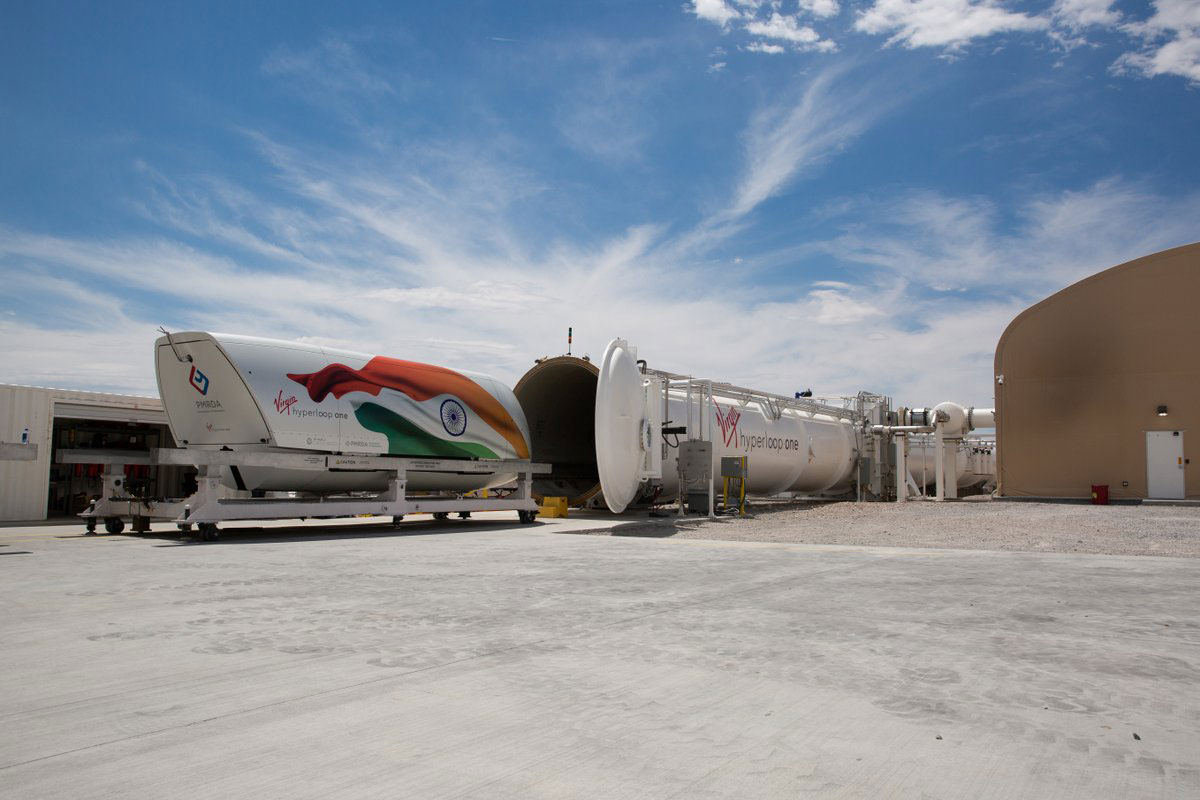Virgin Hyperloop One is looking to start work on its proposed Mumbai-Pune ultra-high speed hyperloop route in India before the end of 2019, the group’s managing director for the Middle East and India told Construction Week.
The new hyperloop route will cut the 140 km journey’s travel time from 3.5 hours to 25 minutes.
“We signed the [memorandum of understanding] with Maharashtra state in November 2017,” said Harj Dhaliwal in conversation with Construction Week during its latest weekly Viewpoint podcast episode.
“We then did a pre-feasibility study to demonstrate the economic financial case to the state, federal authorities, and our investors,” he added, noting that the process concluded in February 2018 with the signing of a binding framework agreement.
This agreement, Dhaliwal explained, “set out a pathway to move from pre-feasibility” into the development, procurement, and construction stages.
Hyperloop One’s Indian route will link Navi Mumbai International Airport in Mumbai to the city of Pune, and is expected to benefit the combined population of 26 million of both cities.
“Phase 1 will be dedicated to building out the initial part of the project – so it’s not something that stands alone in a test facility, but part of the permanent alignment and route,” Dhaliwal added.
“We will then do all of our demonstration to prove to the regulators that [our] system is reliable, safe, and certified for use by the public. Our timeline is that by the end of 2019 we want to commence construction on phase 1, which is the ‘demonstrator phase’, as we call it.”
Certification
Virgin Hyperloop One plans to get certification work completed between end-2023 and early-2024, which would allow the firm to move into phase 2, including construction work.
“We have really been focusing on putting a detailed project report together [to cover] preliminary engineering, costing, finalising, and more importantly, what a concession agreement would look like,” Dhaliwal said.
“We are hoping to have all of that concluded in the next two-three weeks.”
Before that, however, the group must enter Maharashtra state’s procurement process, he added: “The state government is going to request us to submit formally our technical and financial offer to design, build, operate, and maintain that hyperloop route.”
The process then entails the state government formally asking the market if any players can offer a more competitive alternative.
“They then assess both [offers], negotiate, and come to a final binding contractual arrangement,” Dhaliwal explained.






